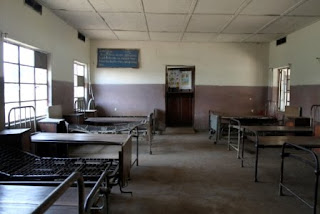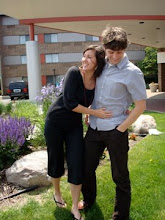
PART I
The election was carried out as planned on November 28th despite anxiety that the Electoral Commission (CENI) was underprepared and generally ill equipped to handle the scope and scale of the elections. This anxiety proved well founded. Election Day was marred by numerous and flagrant irregularities. Many voters arrived at polling stations to find their names were not on the registration list. There were allegations of ballot stuffing and violence broke out in the Congo’s larger cities--namely Kinshasa and Lubumbashi-- that resulted in poll workers being attacked and polling centers burned. The anxiety only increased over the ensuing days as the opposition denounced the results claiming fraud. Kinshasa braced for violence as a strong police presence patrolled the streets. Headlines like “Threat of violence looms large”, “DR Congo on a knife edge” and “Election results raise fears of a return to war” appeared in increasing numbers in international newspapers during the wait. Shops closed. Over 3,000 people fled the capital city, across the Congo River to Brazzaville. The tabulation process itself turned into a logistical nightmare as CENI gathered the ballots from the interior and the far-flung provinces of the Congo for final counting. The results were set to be released on December 5th since that was the day the incumbent’s presidential term expired. This proved impossible and the commission was forced to delay publication of the results twice, from Tuesday to Friday. On that day President Kabila was declared the winner with 49% of the votes cast. The opposition had plenty of ammunition with which to contest these results due to the numerous irregularities, the strong hand of the army in suppressing protests-- 22 people had been killed in Kinshasa by the time results were released-- and highly suspicious voting patterns that made the election appear to be rigged in favor of the incumbent. Whether or not it actually was remains to be seen and will most likely never be known. Several observing groups including the European Union, the Catholic Church and the Atlanta-based Carter Center issued reports stating that the results “lacked credibility” and “did not conform to truth or justice”. Regardless, Kabila was sworn in for another term on Tuesday, December 20th. His main opposition, Etienne Tshisikede, also held an inauguration of his own three days later in his home. So the situation remains far from resolved though Congo has appeared to come back from the brink of major unrest. Even so, another twenty-four people have been reported killed since the results were published.

And it’s Christmas. In my twenty-eight years I don’t believe it has ever felt less like Christmas than it has this 2011. Some of this is due to the obvious fact that living in the tropics means songs like “White Christmas” and “Let it Snow” are rendered a bit irrelevant. Also, not being home in the States means that we are missing out on traditions and on family gatherings and celebrations with familiar faces. But there’s more to it than that and I think the events in Congo are the underlying reason. For they are yet another singular example of the persistent discrepancy between history and the angel’s proclamation of Luke 2: 14: “Glory to God in the highest, and on earth peace, goodwill to men.” Honestly, this peace on earth business can seem more of a myth than a reality. All the more so when an event to the contrary in such proximity disturbs the Christmas spirit.
But Christmas is not about the Christmas spirit. It’s about celebrating the birth of One who came to bring peace between God and Man and in so doing, peace one man to another. It may be difficult to keep singing about peace on earth year after year despite all the evidence to the contrary. But we have this hope, this confidence, that it will not always be so; that one day the entire earth will be reconciled to God, that the swords will be beaten into plowshares, that there will be no more disharmony between hope and history, that war will fade from the memory of the human race. The Christmas carol, “I Heard the Bells on Christmas Day” narrates the victory of this final hope even through a season of doubt.


 Mowa giving Soleil a gift at her kobimisa serivce in March
Mowa giving Soleil a gift at her kobimisa serivce in March 






 The view from above the cave
The view from above the cave






 Soleil learning English at Saturday English Club
Soleil learning English at Saturday English Club










 Praying on the back porch
Praying on the back porch  Praying in our living room
Praying in our living room 













 Not quite the required 2 square inches. Swallow your pride, go back, fork over some cash and get larger prints.
Not quite the required 2 square inches. Swallow your pride, go back, fork over some cash and get larger prints. Go to another photo lab to save some dignity. And make sure you don’t try to get this done between noon and 3PM. Everything is closed. Sorry.
Go to another photo lab to save some dignity. And make sure you don’t try to get this done between noon and 3PM. Everything is closed. Sorry.


